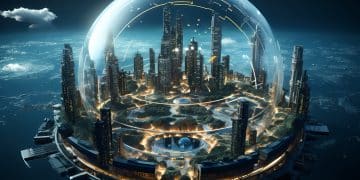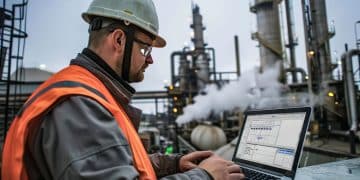UAE Investment Opportunities: Top 10 Non-Oil Sectors Driving Economic Growth
UAE Investment Opportunities are booming as the nation diversifies its economy.
Discover the top 10 non-oil sectors driving growth and attracting global investors
The Oil Dependency Legacy
The discovery of oil in the United Arab Emirates (UAE) during the 1960s radically transformed the nation’s economy. Previously reliant on traditional activities like fishing and pearl trading, the country evolved into a wealthy, oil-centric economy. This newfound oil wealth enabled rapid advancements in infrastructure, healthcare, and education, positioning the UAE among the richest nations in the Middle East.
UAE Investment Opportunities are booming as the nation diversifies its economy. Discover the top 10 non-oil sectors driving growth and attracting global investors
The Strategic Need for Economic Diversification
Despite the tremendous benefits oil revenue has brought, fluctuating global oil prices have revealed the fragility of depending on a single resource. To ensure long-term stability and resilience, the UAE recognized the strategic importance of diversifying its economic base. By reducing oil dependence, the country opened itself to new industries and international investment.

Vision 2030 and Economic Transformation Goals
To reshape its economic landscape, the UAE introduced “Vision 2030”—an ambitious roadmap with clear targets for diversification. This long-term strategy focuses on expanding non-oil sectors such as tourism, technology, renewable energy, and manufacturing. It also emphasizes environmental sustainability, education reform, and empowering the local workforce. These goals are key to ensuring economic resilience in an ever-changing global environment and securing prosperity for future generations.
Why Economic Diversification Matters
Oil Price Volatility and Its Economic Risks
The unpredictable nature of global oil prices has underscored the urgency of building a more resilient economic model. Overreliance on oil makes the economy vulnerable to market shocks, potentially hindering sustainable growth. Diversification provides a more stable foundation for long-term development.
Global Demand for Clean Energy and Sustainability
With rising awareness of climate change, there is increasing global demand for cleaner energy and environmentally friendly practices. The UAE’s investment in renewable energy and sustainable technologies not only aligns with international trends but also strengthens the country’s global competitiveness and future-readiness.
Creating Employment for the Local Population
As the UAE’s population grows, so does the need for job opportunities—particularly for young Emiratis. Economic diversification opens pathways in sectors like finance, tourism, technology, and education, supporting the inclusion of local talent in the workforce. This approach enhances both social cohesion and economic sustainability.
Key Sectors Fueling Diversification
1. Tourism and Hospitality
Tourism plays a vital role in the UAE’s diversification efforts. Cities like Dubai and Abu Dhabi have become global travel hotspots, offering luxury experiences alongside cultural and historical attractions. Events like Expo 2020 and iconic landmarks such as Sheikh Zayed Grand Mosque attract millions of visitors and generate substantial income while boosting local employment.
2. Financial Services and Fintech
Dubai’s rise as a financial powerhouse is fueled by initiatives such as the Dubai International Financial Centre (DIFC) and the Abu Dhabi Securities Exchange (ADX). These hubs attract foreign capital and support a thriving fintech ecosystem. Smart city programs and digital innovation are also shaping the financial future of the UAE.
3. Renewable Energy and Green Technologies
Driven by sustainability goals, the UAE is heavily investing in clean energy. Projects like Masdar City and the Mohammed bin Rashid Al Maktoum Solar Park reflect a national commitment to green development. These initiatives help reduce fossil fuel dependence while creating green jobs and attracting environmentally conscious investors.
Success Stories of Economic Diversification
Dubai: A Global Tourism and Business Hub
Dubai is a leading example of successful economic diversification. Known for landmarks like the Burj Khalifa and its luxury resorts, the city has built a global reputation. Major international events and a world-class infrastructure have further positioned Dubai as a magnet for investment and tourism.
Free Zones Boosting International Trade
Free zones have played a pivotal role in attracting foreign businesses. Locations such as Jebel Ali Free Zone (JAFZA) and DIFC offer tax incentives, streamlined regulations, and logistical advantages. These zones support international trade and provide a business-friendly environment that fuels economic dynamism.
Real Estate and Infrastructure Growth
Real estate remains a cornerstone of economic development. Projects like Palm Jumeirah and Dubai Marina not only draw global investors but also reflect the UAE’s capacity for visionary urban planning. Continued investment in airports, roads, and public transport—such as the Dubai Metro—further enhances economic connectivity.
The Government’s Role in Economic Transformation
Policy Frameworks and Regulatory Reforms
The UAE’s economic shift has been guided by proactive government policies and long-term visions like Vision 2030. Clear legal frameworks have been established to support foreign investment, with a focus on transparency, efficiency, and innovation-friendly governance.
Tax Incentives and Support for Startups
To attract international entrepreneurs and businesses, the government has implemented tax exemptions and reduced trade barriers within free zones. Startup-friendly procedures and digital licensing platforms simplify the process of setting up a company, making the UAE a highly appealing market.
Education and Workforce Development
Investments in education are central to sustaining long-term economic growth. Institutions like Khalifa University and initiatives such as the National Talent Program aim to equip Emiratis with skills in key industries like AI, energy, and engineering. Empowering the local workforce is critical to the UAE’s success in emerging sectors.
Challenges on the Road to Diversification
Regional and Global Competition for Investment
As neighboring Gulf states like Saudi Arabia and Qatar also accelerate their diversification plans, the UAE faces increasing competition for foreign capital. These countries offer similar incentives, creating a crowded field for investors.
Ongoing Oil Revenue Dependency
Despite progress, oil continues to contribute significantly to the UAE’s GDP. This ongoing reliance exposes the economy to global oil market volatility, which can impact funding for diversification projects.
Developing Skilled Local Talent
While the UAE boasts a large expatriate workforce, building a capable local workforce remains a priority. Bridging the skills gap requires continuous investment in education, training, and career development aligned with the needs of future industries.
Opportunities for Foreign Investors
High-Priority Sectors for International Capital
The UAE presents abundant opportunities for foreign investors across a range of high-growth sectors:
- Tourism & Hospitality: Leveraging luxury offerings, cultural heritage, and major international events.
- Renewable Energy: Investments in solar, wind, and sustainable urban projects.
- Technology & Innovation: AI, fintech, smart cities, and digital infrastructure.
- Healthcare & Life Sciences: Expansion of medical tourism and biotech R&D.
- Logistics & Trade: Strategic geographic location with world-class ports and aviation hubs.
- Education & Training: Demand for specialized education aligned with future economic needs.
- Creative Industries: Media, entertainment, and cultural production.
- Agri-tech: Solutions for food security and sustainable agriculture in arid regions.
- Real Estate Development: Continued urban expansion and lifestyle-oriented projects.
- Manufacturing: Advanced industries supported by Industry 4.0 initiatives.
With supportive policies, a stable economy, and ambitious national strategies, the UAE stands as a gateway to regional and global markets—offering investors both growth potential and long-term value.
To read more content on the subject see here





